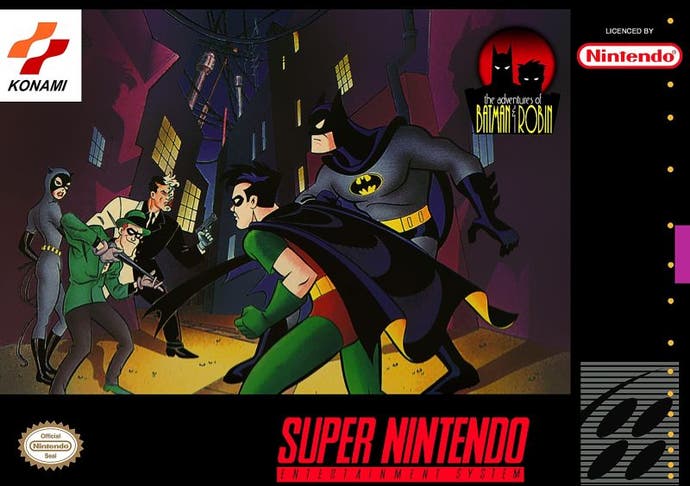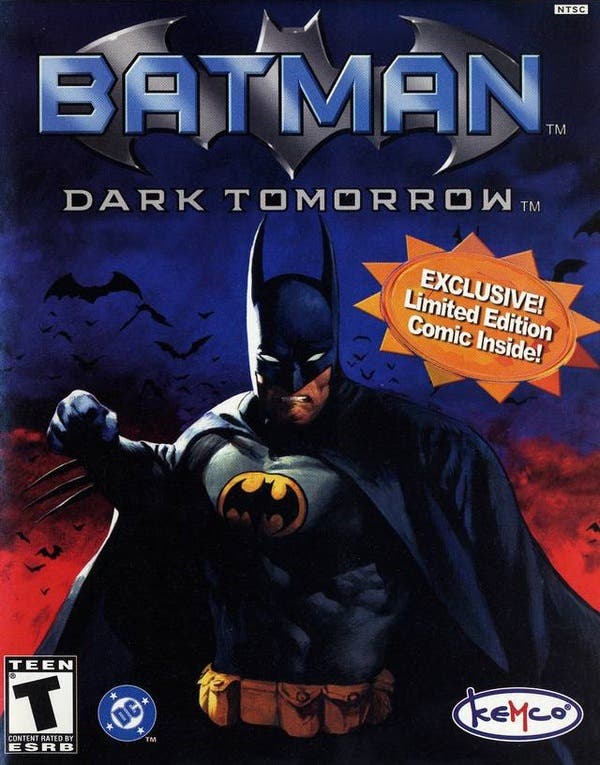Thank you, Rocksteady, for doing Batman justice
Notes from a Batfan.
With the release of Batman: Return to Arkham bringing Rocksteady's first two Batman games to PS4 and Xbox One, we felt it might be time to take a look back and get a sense of the studio's achievements with these wonderful superhero adventures.
I love Batman. While that's a sentiment I'm sure many of us share, I sometimes wonder if my love for The Dark Knight goes a little further than most. It disappoints me to this day that it's the name of a comic book character as opposed to a job description, and I've only found myself more enthralled with DC's creation the older I've become.
Why this is the case, I'm not entirely sure. The fact that Bruce Wayne is driven by utter sadness and depression has always been fascinating to me. This idea that a person can use what are seen as negative emotions and ultimately turn them into a positive is a case study in itself. In many ways, Batman could be seen as a symbol of hope. Hope that you can achieve anything, regardless of your circumstances.
Unfortunately, video games have never shared such a logic when it comes to the Caped Crusader. Despite years of lore, characters and story to draw from, gamers have been royally screwed in this regard. It's a wave of terror that can be applied to almost any superhero experience, all of which seem incapable of getting the feel right. In the past, some developers haven't even bothered trying. The focus was on getting the game itself done, whatever that may be, and then you just plonk recognisable assets over the top.
In short, it's generally been excruciating loving both Batman and video games, especially during my younger years. For the most part, children are stupid - as they should be - but that stupidity also brings with it a sense of expectation. Growing up, all it took to pique my interest in a Batman video game was the fact that the box said 'Batman' on it. That was it. I trusted in those given such an important task, and believed that, as I would, that they understood and loved Batman as much as I did.

And what was I treated to? Thanks for asking; I was treated to The Adventures Of Batman & Robin on the Super Nintendo, which I begged my parents to buy me. Literally begged. At the disgusting price of £54.99 they eventually relented, and while they never knew it, they had essentially purchased a box of disappointment.
Based on Batman: The Animated Series - which was proof positive that it was possible to portray Bats in the right way no matter who your demographic was - this was obvious, throwaway fodder. It may have been indicative of games at the time, but the slog of moving from screen to screen just punching countless enemies in the face was nothing short of dull. It's not like such an approach couldn't work - Batman Returns from a few years earlier had proved there was a way when it came to its own depiction - but I was baffled as to what the intended purpose was.
It carried on throughout the years, too, with countless iterations where the design teams were clearly caught up in whatever the current trend was at the time, as opposed to sitting down and questioning what exactly made Batman work. Even in 2003 nonsense such as Dark Tomorrow was being released, a game so confusing and full of bugs it was almost an insult to the license. The concepts of time and polish had clearly been thrown out the window.
This, however, literally changed in 2009 when Rocksteady released Arkham Asylum. A project that came out of nowhere and to almost no buzz, it was instantly clear that the studio had something others didn't: the understanding of Batman. Instead of someone obtaining the rights and then trying to fit a genre around it, the London-based company went the other way. It wanted to get everything right. And it did.

The Arkham series is leaps and bounds ahead of anything else that came before it. Tapping into the character's mindset and then allowing that to serve as the foundation from start to finish, there isn't a moment that could be defined as 'un-Batman'.
It's why you constantly find yourself on top of buildings brooding away; why the combat system has been designed to define the word 'empowered'; why the soundtrack always swells at exactly the right time. These aren't mistakes or happy coincidences: they're choices. Rocksteady understands what a fan wants to take away from the experience, and by and large, it never went wrong.
The shift between Asylum and City is proof of just that. Whereas the former prides itself on suffocating the player and making them feel trapped within a prison, the latter opens up completely, offering the freedom Gotham's watcher would have. All you ever need to do is sit down with either for a swift reminder of this, but even when laid out on paper it's obvious.
Take the Scarecrow sections from Asylum, or how Hush is worked into the plot during City. I can say with absolute confidence that no one else tasked with the development of a Batman video game from years prior could have pulled this stuff off. Those involved would probably have had to Google who Thomas Elliot was. That's Hush, in case you care.
It's for all these reasons that the Arkham-verse shouldn't be overlooked for the contributions it's made to the character, even if you didn't enjoy the Batmobile in Arkham Knight (which remains a dubious point of contention). These games are so far ahead of the curve it's almost incomparable, a genuine representation of DC's greatest export but in digital form.
Most importantly, Rocksteady has completely rewritten the rulebook as to what is and isn't acceptable when it comes to gaming's interpretation of a superhero. If anyone dared tried to release something that even seemed subpar today, the community at large would be up in arms. They've seen what's possible. They know what's reasonable to expect. Anything that can have such an impact deserves appropriate praise, and that's the Arkham series in a nutshell.
Besides, if nothing else, they rescued me from 20 plus years of utter mediocrity and disappointment, and for that, I can never say thank you enough.
